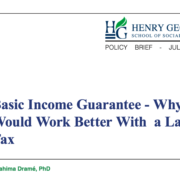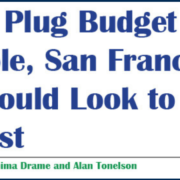The conventional business model views a firm’s short-term profit maximization as its only purpose and measure of success. At the end of the 19th century, Henry George analyzed the paradoxical trend of increasing inequalities in a period of rapid industrialization and growing corporate profitability. Today, the problem has risen again to the top of economic policy and academic discussions. The concerns revolve around enacting reforms of corporate governance structures consistent with a socially conscious business model. Reflecting on these topics, a new business model has begun to evolve in parallel with what has become known as the Stakeholder Approach. Increasingly, businesses are abandoning the one-sided focus on short-term profit maximization and implementing long-run measures for positive social impact. These firms embrace concepts such as sustainability and stakeholder capitalism. Evidence shows that firms that act ethically create sustainable prosperity both for themselves and for their employees and communities. This paper reviews previous theories of the firm, their shortcomings, the success companies achieve from embracing the new social paradigm for business, the organizational entities that may facilitate a transition to a socially conscious corporation through ESG measures that support stakeholder interests, and the organizations that measure businesses’ environmental and social impact.






